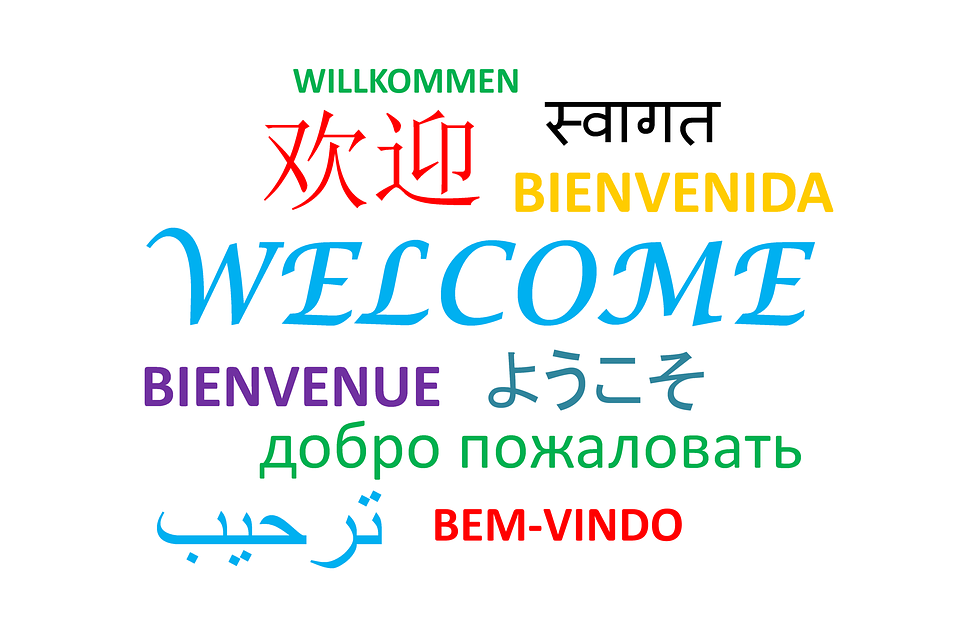Learning a new language is always very handy as well as useful, whether you want to meet people, discover new cultures, explore new flavors or just approve a course. Well, here are some tips to learn any language, do it faster and speak more fluently, or just to help you in school, university, some pending tasks or just in case you have moved recently and abruptly to a country with a language very different from yours although of course ... everything will depend on your perseverance.

Tips
1.- Begin with the simplest: if you are starting the learning of a language from scratch, you can start with the alphabet, numbers, vowels, etc. and so to progress to the most difficult, do not ponder on a single thing, the idea is to learn little by little, at your own pace, conditions and skills, do not martyr yourself, just be constant, constancy is the key.
2.- Learn it as it taught to you as a child: this means that you do not take it so drastically and pretend to know it or understand everything in a day, that does not happen as it cost us all at first to learn our native language, well take it like that, watch children's programs, because here they speak a little slower, it is aimed at people who, just like you, are learning to talk; read a little, this will help you in the grammar, vocabulary and structure of your sentences.
3.- Practice it: talking puts into practice everything what have been learned. Mark Manson (author) states that, with one hour of conversation (with people who speak the language you are learning), it is enough to learn the same thing that you would learn with 5 hours taking classes or 10 hours on your own. And, talking is a complex process that involves listening to the other person who speaks, understanding what he says, planning the answer in your mind and then expressing it orally. Remember that language is something that needs to be processed, not memorized. You can join chat groups, take classes online, attend events, listen to podcasts, watch movies in the language you are trying to learn, etc.
4.- Repeat what you hear: whether you are listening to a live broadcast, watching a movie or series, repeat what you hear, you can pause the transmission and repeat it, or simply repeat it along, this will help your ear to get used to these new sounds, your mouth and tongue to move in a certain way to achieve the correct pronunciation of words and help you identify your mistakes more quickly, efficiently and correctly since you are listening as it sounds correctly and sounds like wrong way.
5.- Practice in your mind: language is processed in our mind. At every moment we are thinking in a new idea, remembering some moment of our life or planning things that we have to do in the future. This is usually done in our mother tongue; But why not force our brain to think in another spanish for example (or the language of your choice). Form sentences in another language and design responses to different situations will help us prepare for when they arrive. You can write a text of daily actions, or simply take a text already written and try to translate or interpret it.
6.- Carry a small dictionary with you: no matter how hard we try, it is a fact that learning all the words that are used in another language is not easy. So, to help you a little, try to have a dictionary on hand for each time you listen or read a word you do not know. It is not necessary to carry with a great book for the rest of your life, nowadays the wonder of smart phones can make you have everything you need with a single touch.
7.- Listen and read: practice makes perfect. But, in order to not make your learning a boring and tedious process, use every opportunity you have to introduce the new language to your daily life activities. For example, you can watch a movie with subtitles (on the language you are trying to learn), listen to music and search for the lyrics of the songs, but try to avoid urban music because they do not have a correct use of the language and this instead of helping you can hurt your learning progress and even confuse you, read news in another language, listen to audiobooks, there are even some who say that a very effective method is to label all the objects that are in your house with their respective names in the language you are learning, this will help you learn a lot of vocabulary.
8.- Use technology: nowadays learning anything is literally at the tip of our finger prints, so, why not use it in our favor, to investigate a little, to improve ourselves, to stay healthy and even to learn a new language: You can start with this by changing the language (you want to learn) to the cell phone completely, or maybe start by changing it to some applications, you can also change the language to your computer, interact and get used to this new language, another thing that will help you is to download applications that that are on charge to teach languages you learn the language, you can also install some applications of dictionary, pronunciation
9.-Make mistakes: yes, making tons of mistakes is the best way to learn, do not be afraid of failure, of error, of imperfection, it is perfectly acceptable and totally admissible, as long as you take that mistake and turn it into learning and not only see it as a failure or a setback, the more mistakes you make, the more you fail, the more you stumble, the closer you will be to achieve your goals, remember that: " A LESSON WELL LEARNED ... IS NEVER FORGOTTEN”.